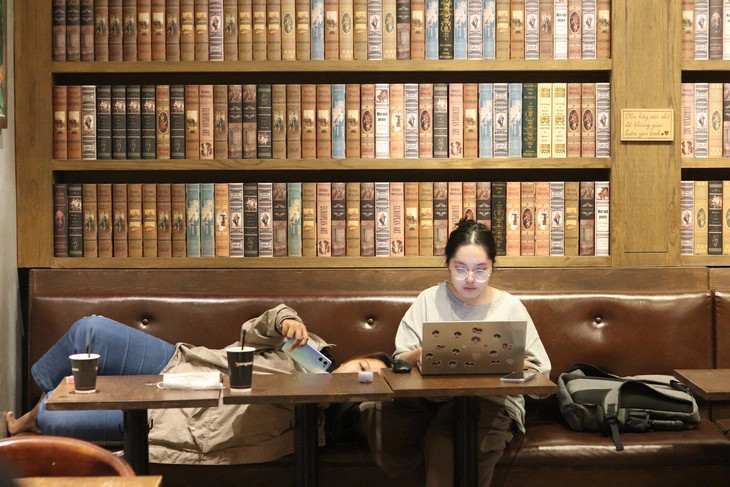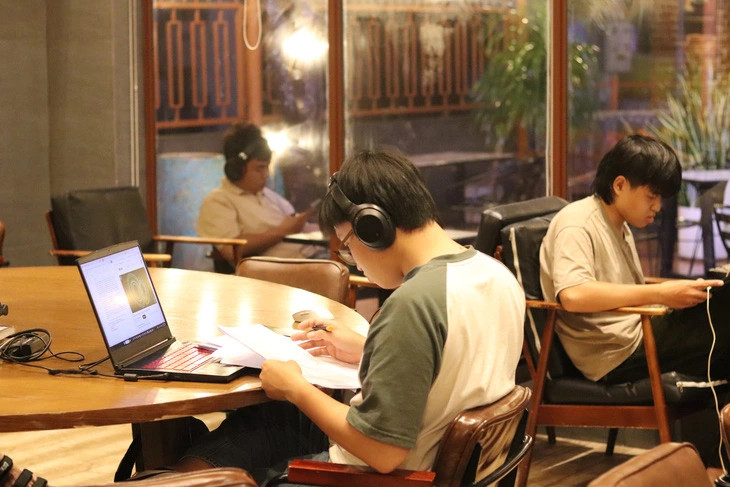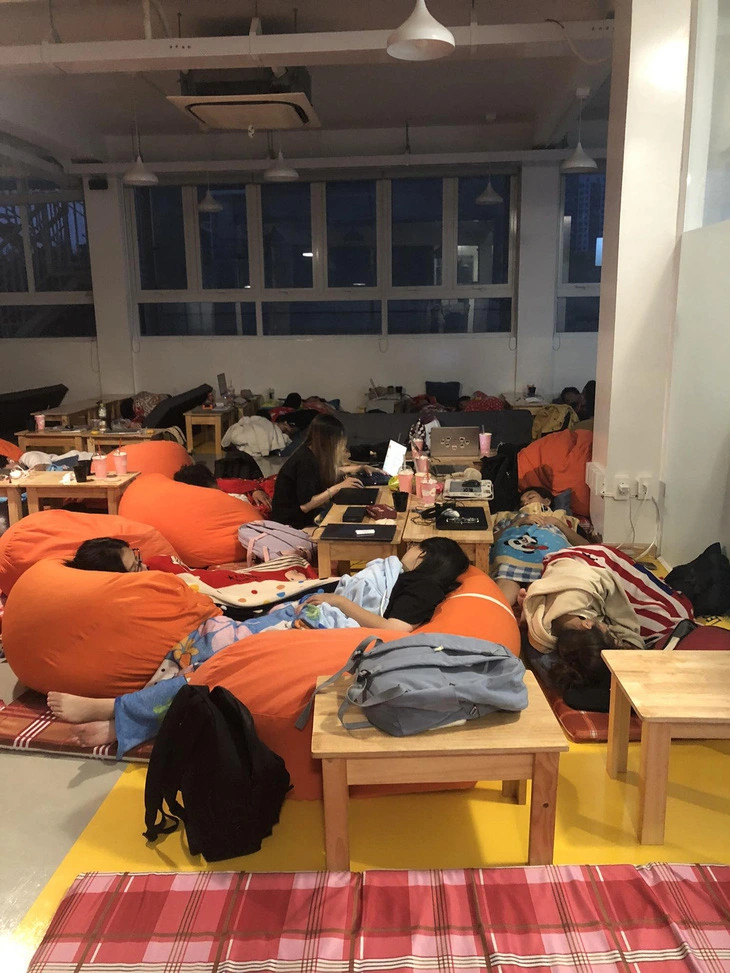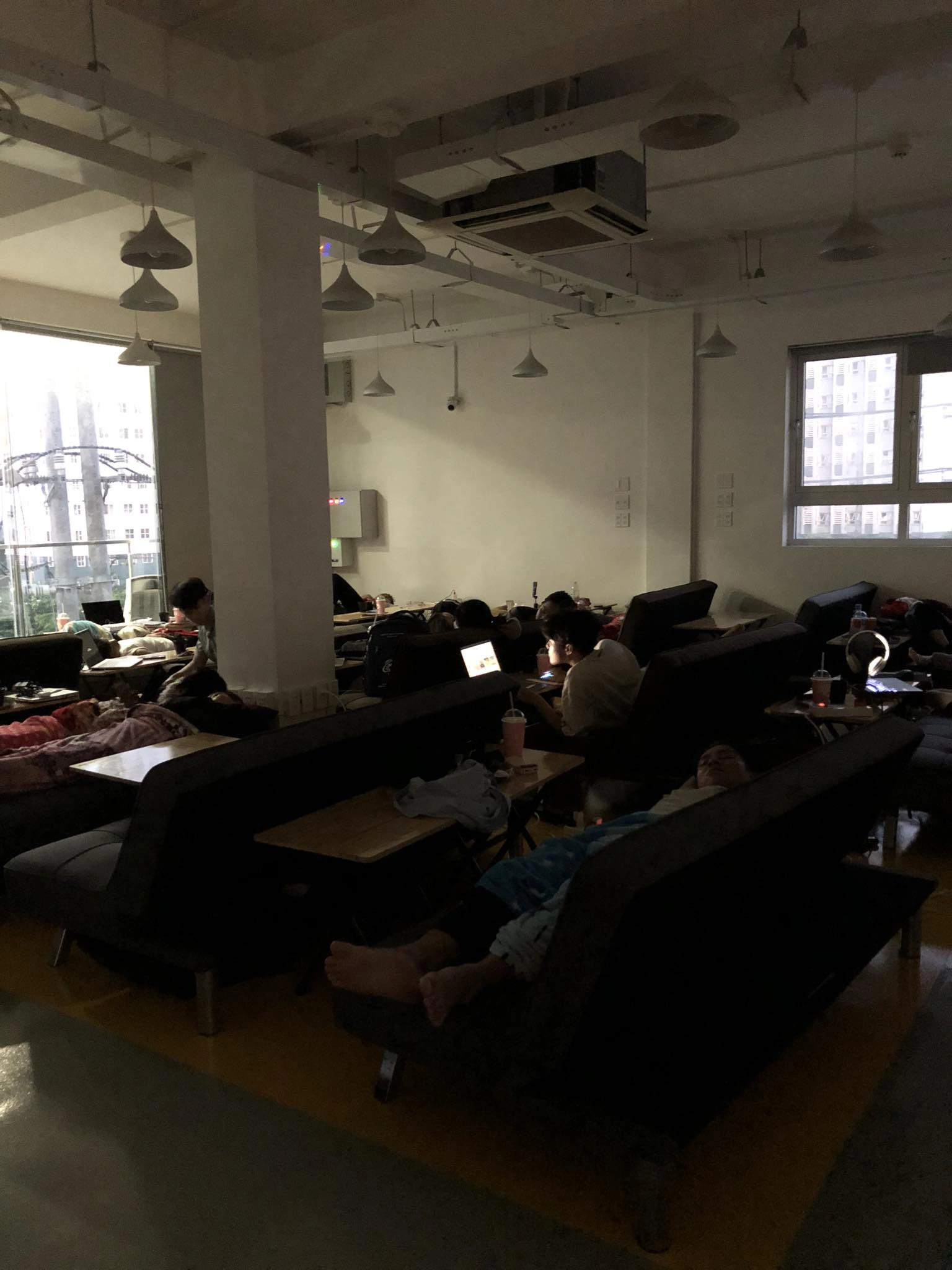There is an upward trend in young students in Ho Chi Minh City plowing through their assignments at cafés despite the late hour, raising the risk of chronic insomnia.
Many 24-hour coffee shop staff members are accustomed to numerous students studying and working at times foreign to most Vietnamese.
Around-the-clock cafés targeting students are also available in 'Thu Duc University Village,' a cluster of universities under the Vietnam National University in Thu Duc City under Ho Chi Minh City.
Accordingly, a café on Luong Dinh Cua Street in Thu Duc City stayed open to welcome customers, most of whom are Vietnamese, though the clock was about to strike midnight.
|
|
| Sleeping is not an option for students who are trying to meet their deadlines. Photo: P.K. / Tuoi Tre |
“It is typical for students to flock to the store during the exam period. The number of customers can reach 100 during the peak season," said Nguyen Thanh Vinh, a coffee shop employee.
The personnel have to take turns being on duty to receive customers at the payment counter.
Being a 'night owl,' Minh Chau avoids disturbing her dorm roommates by opting for a sleepless café to meet her deadlines.
As a student at the University of Social Sciences and Humanities in Ho Chi Minh City, Chau is also a regular customer at many coffee houses in the 'Thu Duc University Village.'
“My mom is always complaining about me staying out late repeatedly without knowing that I need an appropriate ambiance for study and that I will sleep the following day to regain health,” she said.
Meanwhile, Vo Thi Bich Tram, a sophomore from the Ho Chi Minh City University of Technology, often walks into an overnight café at 8:00 pm and returns to campus at 9:00 am the next day.
Even though she knows this pattern will do harm to her health, Tram still sticks to this habit as she finds the late-night atmosphere most suitable for study.
According to Tram, the quiet night enhances her productivity, and looking at other people working actively in public places like coffee houses prods her to pay more attention to studying.
Staying up late raises risk of chronic insomnia
Le Cong Lam, owner of the 24-hour coffee shop on Luong Dinh Cua Street in Thu Duc City, has extended his store’s service hours to 24 hours in order to meet the demand of students.
|
|
| There are two types of rooms at 24-hour cafés for students to select: one with hard wooden chairs and the other with soft beanbags. Photo: Bao Tien / Tuoi Tre |
He even equipped his café with beanbag chairs, resembling giant pillows, for students to lie back whenever they are exhausted or drowsy.
It only costs VND20,000-40,000 (US$0.81-1.63) for a drink alongside VND10,000 ($0.41) as a surcharge for rooms with wooden chairs or VND30,000 ($1.22) for those with cotton beanbags.
Staying up late for a long time will damage health and cause serious long-term effects, said Dr. Ha Thanh Dat, a lecturer at the Pham Ngoc Thach University of Medicine.
A grown-up normally needs an eight-hour sleep every night for the body to recover.
As a result, the internal organs can get some rest as night falls and function optimally the following day.
“A sleep of good quality can boost the immune system and avoid various health issues such as cardiovascular diseases, stroke, diabetes, and more," Dat added.
“Staying up late regularly can also lead to chronic insomnia.
“Meanwhile, those who suffer severe symptoms should have medical experts assist with regaining the normal biological rhythm.”
|
|
| This photo shows many students studying from late at night to early in the morning. Photo: Bao Tien / Tuoi Tre |
As for unavoidable cases, students should relax about five to 10 minutes after 45-50 minutes of intense concentration to optimize focus and steer clear of fatigue.
During this short break, learners can take deep breaths, have some water, listen to music, or do a few light exercises.
Dr. Dat said that a doze of around 30-45 minutes is needed after two hours of studying so that the body can rest, regenerate energy, and maintain stable concentration.
Like us on Facebook or follow us on Twitter to get the latest news about Vietnam!





















































